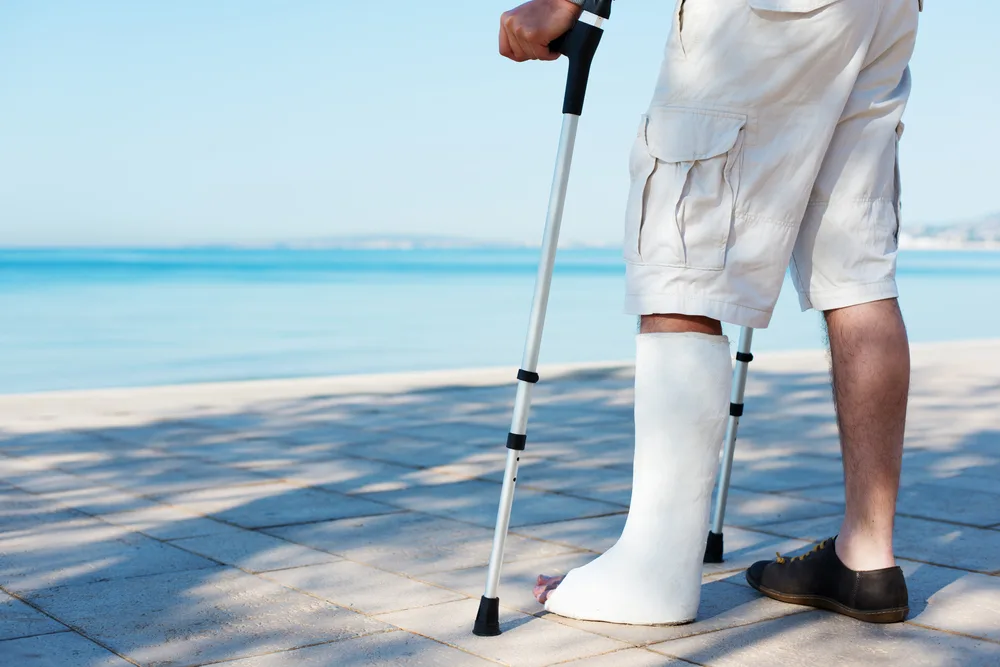9 Common reasons why travel insurance claims are rejected

Every year, thousands of travellers rely on their travel insurance for everything from lost luggage to medical emergencies abroad. Most claims are paid, but when things do go wrong, it’s often due to simple oversights that can be easily avoided.
Travel insurance exists to offer peace of mind, and for most, it delivers just that. However, for a small number of travellers, common mistakes can cause delays or complications when making a claim. In Ireland, travel insurance complaints rose by nearly 19% in 2023/24, with many stemming from non-disclosure of medical conditions, delayed documentation, or confusion over policy wording.
This guide breaks down the most common reasons claims don’t succeed – from medical disclosures to paperwork issues – and shows you how to avoid them. With a little preparation, you can travel with confidence, knowing your cover will be there if you need it.
Common reasons why travel insurance claims are rejected
From forgotten disclosures to misunderstandings about what your policy actually covers, there are several reasons why travel insurance claims can be declined. Many of these issues are avoidable, but only if you understand what your policy requires.
Whether it’s a medical emergency abroad, a lost phone, or a cancelled trip, your insurer will expect certain conditions to be met before they agree to pay out. These might include declaring medical conditions in full, providing the right paperwork, or following the advice issued by the Department of Foreign Affairs (DFA).
Unfortunately, the most common claim rejections happen because travellers didn’t know the rules, or assumed they didn’t apply to their trip.
Top reasons claims are commonly rejected include:
- Failing to declare pre-existing medical conditions
- Claiming for excluded activities or incidents (like high-risk sports or drinking-related injuries)
- Not providing essential documents such as receipts, police reports, or medical notes
- Buying the wrong type of cover for your trip or activities
- Ignoring official travel warnings that affect your cover
In the sections below, we explore each of these in more detail, with practical tips to help you avoid rejection and travel with confidence.
How to avoid your travel insurance claim being rejected
While no one expects things to go wrong on holiday, understanding your travel insurance can be the difference between a paid claim and a costly disappointment.
1. You must declare pre-existing medical conditions
A pre-existing medical condition is any illness, ongoing symptom, or condition you’ve had medical advice or treatment for before your trip. That includes diagnosed and undiagnosed issues, even if they seem minor or are under investigation.
Failing to declare these conditions when you take out your travel insurance policy is one of the most common reasons for claim rejection. Even if your trip is unrelated to your health issue, the entire policy could be invalidated.
Declare all of your conditions if you:
- Take medication or have regular check-ups
- Have been referred to tests or scans
- Are awaiting a diagnosis
- Have had surgery or hospital treatment in the past two years
When in doubt, declare everything. It’s better to be over-cautious than risk invalidating your entire policy.
2. Check your policy’s exclusions
Travel insurance policies often contain a list of situations or activities that are not covered. These are known as “exclusions”. They are easy to miss and can lead to rejected claims, so it’s important to read your policy thoroughly and check for any exclusions.
Examples of common exclusions include:
- Drinking-related incidents
- High-risk sports like rock climbing and paragliding, unless you have added extra cover
- Leaving luggage unattended
- Travelling against medical advice
Read through the exclusions section of your policy before you travel. If you’re planning activities like canyoning, parasailing or trekking at high altitudes, make sure they’re included, or add them as optional extras.
3. Keep all necessary documentation
To process a claim, insurers usually ask for proof of what happened. Missing or incomplete documents are a major reason claims are delayed or denied altogether.
Depending on the claim, you might need:
- Doctor’s letters or hospital discharge notes
- Receipts for medical treatment or transport
- Police reports for theft or loss
- Airline or accommodation cancellation emails
- Photographic evidence of items or incidents
You should take photos of all receipts and back them up digitally. Report any thefts immediately to the local police and get a written report.
4. Choose the right level of cover
Buying the wrong type of travel insurance, or not choosing the right optional extras, could leave you unprotected when it matters most.
Examples of mismatched cover include:
- Taking a cruise without cruise cover
- Buying European cover for a trip that includes Dubai or Thailand
- Not declaring a family member’s condition on a joint policy
- Skipping gadget cover when bringing expensive electronics
Double-check the destinations, the length of your trip and any activities you’ll be doing, and match your policy to your plans.
5. Follow Government travel advice
If you travel to a destination that the Department of Foreign Affairs (DFA) has issued a warning against – especially “Do Not Travel” – your policy won’t necessarily be invalid, but it could be restricted. If an incident is linked to the reason for the warning, such as political unrest or extreme weather, it may be considered a “known event” and excluded from your policy.
For example, travelling during civil unrest, extreme weather warnings, or to areas under international sanctions might limit your cover for events related to that advice. But you would still be covered for unrelated incidents like lost luggage or delays.
- Check the DFA website before booking or departing
- Recheck the advice if there’s a developing situation in your destination
- Don’t ignore DFA warnings, as your cover may not apply
Your travel insurer will expect you to follow this guidance as part of your duty of care. If you knowingly travel against it, you may not be eligible for help if something goes wrong.
6. Alcohol and drugs
Most travel insurance policies clearly state that claims arising from excessive alcohol or drug use will not be covered. Even a minor injury or loss that occurs while under the influence could result in your claim being declined.
This includes:
- Slips, trips, or accidents after drinking
- Lost or stolen items while intoxicated
- Medical emergencies caused or worsened by substance use
Having a drink on holiday isn’t a problem, but if alcohol contributes to an incident, your claim could be denied. For example, if a doctor believes drinking worsened your injury or a witness reports that you were intoxicated, your insurer may argue that your behaviour increased the risk. The same applies if drugs, including non-prescribed medication, are involved.
Always drink responsibly and avoid mixing alcohol with medication. Keep valuables secure and avoid risky activities after consuming alcohol.
7. Mopeds and motorcycles
Hiring a scooter or motorcycle is a popular way to explore holiday destinations, but it comes with important insurance caveats. Many travel insurance policies won’t cover accidents on mopeds or motorcycles unless specific conditions are met.
Key restrictions often include:
- You must hold a valid motorbike license for the engine size
- You must wear a helmet regardless of local laws
- You must not be under the influence of alcohol or drugs
- The bike must be hired legally and not used for racing or stunts
Before hiring a moped or motorcycle abroad, check your policy wording or call your insurer. If you’re not licensed or don’t follow safety regulations, any injury-related claim could be rejected. This includes medical costs or repatriation.
8. Don’t wait too long to make a claim
Most insurers set time limits for when you need to notify them and submit your claim. If you wait too long, your claim may be rejected even if it’s otherwise valid.
- Report the incident as soon as it happens (within 24-48 hours, where possible)
- Submit supporting documents within the timeframe stated in your policy (usually within 30 days)
If you’re unsure whether to claim, contact your insurer right away and ask what they need.
9. Follow the claims process correctly
Even small admin errors can delay your claim or result in requests for additional information, and in some cases, they may lead to rejection if not corrected. For example, filing in the wrong section of a form, sending documents late, or missing details in your claim story.
- Read your claims checklist
- Keep your policy number and emergency contact details saved
- Complete the claim forms clearly and thoroughly
- Double-check all documents before submission
If you’re not sure about any part of the process, contact your insurer’s claims team for help. They’ll guide you through it step by step.
Travel smarter, claim right
Making a successful travel insurance claim isn’t just about luck; it’s about preparation. By declaring your medical conditions, understanding your policy, and following each step carefully, you’re giving yourself the best chance of a smooth payout if something does go wrong.
If you’re unsure about your current cover, now’s the time to review your policy. JustCover makes it easy to get the right level of protection for your trip, without the jargon.
Get a quick travel insurance quote
Affordable travel insurance for all your needs
Discover the World
Stay up to date with the latest travel tips and advice

Ireland’s best cities for fireside cosiness this winter

Age is no barrier: over-55s embrace adventure holidays
